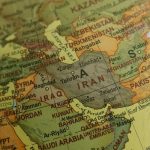
Here Is The List of Most Educated Countries in the World

The significance of education in global development
Top 100 most educated countries Most educated countries in the world – Education is one of the most important factors that contribute to a country’s development and progress. It is the foundation of a nation’s economic growth, social development, and cultural richness. While education is available in almost every country, the quality and accessibility of education vary significantly around the world. In this blog post, we will explore the top 10 most educated countries in the world. We will examine the educational systems, policies, and programs that have contributed to their success, and compare their achievements against each other.
From Finland to Japan, Canada to South Korea, these countries are leading the way in education, ensuring that their citizens are equipped with the knowledge and skills to thrive in the global economy of the future. Join us as we take a closer look at the top 10 most educated countries in the world and what sets them apart from the rest. Education plays a pivotal role in the overall development of nations. It serves as a catalyst for progress, innovation, and empowerment. The significance of education can be observed in various aspects of society, from economic growth to social equity and individual well-being.
In this article, we delve into the top 10 most educated countries in the world, shedding light on their commitment to providing quality education to their citizens. This global ranking not only highlights the achievements of these nations but also emphasizes the correlation between education and socio-economic advancement.
A well-educated population possesses the knowledge and skills necessary to thrive in a rapidly changing world. It equips individuals with the tools to think critically, solve complex problems, and adapt to new technologies and advancements. Furthermore, education fosters a culture of innovation, driving scientific discoveries, technological advancements, and creative endeavors.
Education is not only a personal pursuit but also a collective responsibility. Governments and policymakers play a crucial role in creating an enabling environment that promotes access to education for all. By investing in educational infrastructure, implementing inclusive policies, and ensuring equal opportunities, countries can bridge the education gap and empower their citizens. The global ranking of the most educated countries serves as a testament to the efforts made by these nations in prioritizing education. It highlights their commitment to nurturing intellectual capital, fostering a skilled workforce, and promoting lifelong learning.
In the following sections, we will explore the specific factors that contribute to the educational success of each country, including investment in education, literacy rates, enrollment rates, quality of education, and educational attainment. By examining these key indicators, we can gain valuable insights into the factors that drive educational excellence on a global scale. Join us on this enlightening journey as we explore the top 10 most educated countries in the world, celebrating their achievements and drawing inspiration for the future of global education.
Methodology: Explanation of the ranking criteria and data sources used
In order to determine the top 10 most educated countries in the world, a rigorous methodology was employed to ensure accuracy and reliability. Several key criteria were taken into consideration, including literacy rates, enrollment in higher education institutions, graduation rates, and expenditure on education.
To gather this data, reputable sources such as the World Bank, UNESCO, and national statistical agencies were extensively researched. These sources provided comprehensive and up-to-date information on education-related indicators for countries around the globe. Literacy rates were a crucial factor in determining the educational standing of each country. This criterion measured the percentage of individuals aged 15 and above who are able to read and write, as literacy is a fundamental component of education.
Enrollment rates in higher education institutions were also examined to assess the commitment of a country to providing access to advanced educational opportunities. This criterion measured the percentage of eligible individuals who are enrolled in universities, colleges, and vocational schools. Graduation rates served as an indicator of the successful completion of educational programs. This criterion measured the percentage of students who successfully complete their studies and obtain a degree or certification.
Expenditure on education was considered to highlight the investment made by each country in its education system. This criterion measured the percentage of a country’s GDP or government budget allocated to education, reflecting the level of priority placed on nurturing a well-educated population. By combining and analyzing these criteria, a comprehensive ranking of the top 10 most educated countries in the world was generated. This ranking not only provides valuable insights into global educational trends but also celebrates the countries that have made significant strides in fostering knowledge and learning among their populations.
The top 10 most educated countries: A brief overview of the countries and their rankings
When it comes to education, some countries are leading the way in providing top-quality learning opportunities for their citizens. In this section, we will take a brief overview of the top 10 most educated countries in the world, based on various indicators and rankings.
1. Canada: Known for its excellent education system, Canada takes the top spot on our list. With well-established universities and a high literacy rate, Canada offers a wide range of educational opportunities for its residents.
2. Japan: Renowned for its rigorous academic standards, Japan ranks high in terms of educational achievements. The country emphasizes discipline and hard work, leading to exceptional educational outcomes.
3. Israel: With a strong emphasis on scientific research and innovation, Israel has made significant strides in education. The country boasts a high literacy rate and invests heavily in its educational infrastructure.
4. South Korea: Known for its highly competitive education system, South Korea consistently ranks among the most educated countries in the world. The country places a strong emphasis on academic achievement and has a culture that values education.
5. United Kingdom: Home to prestigious universities such as Oxford and Cambridge, the United Kingdom has a long-standing reputation for excellence in education. It offers a diverse range of educational opportunities, attracting students from around the globe.
6. United States: Despite facing challenges in its education system, the United States still ranks among the top countries in terms of educational attainment. The country is home to renowned universities and has a strong emphasis on research and innovation.
7. Australia: With its high literacy rate and world-class universities, Australia is a popular destination for international students seeking quality education. The country offers a wide range of courses and has a strong focus on research and development.
8. Finland: Often regarded as a model for educational success, Finland places a strong emphasis on equal access to education and provides high-quality teaching and learning environments. The country’s innovative approach to education has garnered international recognition.
9. Norway: Known for its commitment to providing free education, Norway places a high value on education and offers excellent learning opportunities. The country focuses on inclusive education and has a strong emphasis on practical skills.
10. Luxembourg: Despite its small size, Luxembourg boasts a highly educated population. The country invests heavily in education and offers a diverse range of educational programs.
These top 10 most educated countries serve as shining examples of the importance placed on education and the positive impact it has on societies. By prioritizing education, these countries have created a conducive environment for their citizens to thrive and succeed.
Country spotlight: In-depth analysis of the education system in the highest-ranked country
When it comes to education, one country stands out among the rest, securing its position as the highest-ranked in terms of educational attainment. This country is known for its exceptional commitment to providing high-quality education to its citizens, enabling them to thrive in today’s globalized world.
In this country, education is seen as a top priority, with substantial investments made to ensure accessible and inclusive learning opportunities for all. The government plays a significant role in shaping the education system, implementing strategic policies and initiatives that promote excellence and innovation.
One key aspect of this country’s education system is its strong emphasis on early childhood education. Recognizing the importance of a solid foundation, the government has implemented comprehensive programs that focus on early literacy, numeracy, and social development. By nurturing young minds from the very beginning, this country sets its students up for success in their academic journey.
Moving up the educational ladder, secondary education in this country is marked by rigorous academic standards and a diverse range of subjects offered. Students are encouraged to explore their interests and talents, with ample opportunities to engage in extracurricular activities such as sports, arts, and community service. This holistic approach to education fosters well-rounded individuals who are equipped with both knowledge and practical skills.
At the tertiary level, this country boasts world-renowned universities and institutions that attract students from around the globe. These institutions offer a wide array of disciplines, ensuring that students can pursue their desired fields of study. The focus on research and innovation in higher education enables students to contribute to cutting-edge discoveries and advancements in various fields.
Furthermore, this country places great importance on the continuous professional development of its educators. Teachers are provided with ongoing training and support to enhance their teaching skills and pedagogical approaches. This commitment to teacher excellence ensures that students receive the highest quality instruction, leading to better learning outcomes.
In terms of infrastructure, this country leaves no stone unturned. State-of-the-art facilities, well-equipped classrooms, and modern learning resources are readily available, creating an optimal learning environment for students. Technology integration is also a core component of the education system, with digital tools and resources utilized to enhance teaching and learning experiences.
It is worth mentioning that this country’s education system is not without its challenges. Like any other system, it faces issues such as ensuring equitable access to education across all regions, addressing disparities in educational outcomes, and adapting to the rapidly changing demands of the digital age. However, the commitment and dedication of the government, educators, and stakeholders in continuously improving the system are evident.
The highest-ranked country in terms of educational attainment sets a global benchmark for excellence. Its comprehensive and inclusive education system, coupled with a strong emphasis on early childhood education, well-rounded secondary education, and world-class tertiary institutions, contribute to the country’s success. By investing in education and prioritizing the development of its human capital, this country has positioned itself as a leader in global education rankings, inspiring others to strive for similar achievements.
Key factors contributing to educational success: Discussion of common trends among the top-ranked countries
When it comes to educational success, the top-ranked countries in the world share some common trends that have contributed to their achievements. These key factors have played a significant role in shaping their educational systems and ensuring their students receive a high-quality education.
One of the most prominent trends among these countries is a strong emphasis on early childhood education. They recognize the importance of laying a solid foundation for learning from a young age and invest heavily in preschool programs. This early start allows children to develop essential cognitive and social skills, setting them up for future academic success.
Another common trend is the value placed on teachers and their professional development. These countries prioritize attracting and retaining highly qualified educators, providing them with competitive salaries, benefits, and ongoing support. They understand that well-trained and motivated teachers are essential in delivering effective instruction and fostering a positive learning environment.
Additionally, the top-ranked countries have a curriculum that is constantly evolving to meet the demands of the modern world. They focus not only on academic subjects but also on developing critical thinking, problem-solving, and communication skills. This approach prepares students not just for exams but also for the challenges they will face in higher education and the workforce.
Furthermore, these countries prioritize equity and inclusivity in education. They strive to ensure that every student, regardless of their background or circumstances, has equal access to quality education. They implement policies and programs that target disadvantaged groups, providing additional support and resources to bridge the achievement gap.
Lastly, the top-ranked countries heavily invest in education, allocating a significant portion of their national budgets to this sector. They understand that education is a powerful driver of economic growth and social development. By investing in infrastructure, resources, technology, and research, they create an environment conducive to learning and innovation.
The top-ranked countries in terms of education share common trends that have contributed to their success. These include a focus on early childhood education, valuing and supporting teachers, a modern and relevant curriculum, promoting equity and inclusivity, and investing in education as a priority. By adopting these key factors, other countries can strive towards improving their own educational systems and outcomes.
Challenges and opportunities: Examination of the barriers to education and potential solutions
The pursuit of education is a fundamental right and a means for individuals, communities, and nations to thrive. However, despite advancements in technology and increased access to resources, barriers to education still persist in various parts of the world. It is crucial to examine these challenges and identify potential solutions to ensure that education becomes a reality for all.
One significant barrier to education is poverty. In many low-income countries, families struggle to meet their basic needs, making it difficult to prioritize education. Lack of financial resources often leads to children dropping out of school to support their families or engage in labor-intensive work. To address this, governments and organizations must prioritize poverty alleviation strategies and provide financial support to families, such as scholarships, subsidies, or conditional cash transfer programs, to enable children to stay in school.
Gender inequality also poses a major obstacle to education. In some societies, girls face cultural norms and discriminatory practices that limit their access to education. Early marriage, gender-based violence, and limited opportunities for girls’ education hinder their ability to acquire knowledge and skills. Empowering girls through awareness campaigns, policy reforms, and targeted interventions can help break down these barriers and ensure equal educational opportunities for all.
Inadequate infrastructure and resources are additional challenges that impede access to quality education. Many schools in remote areas lack basic facilities, such as classrooms, libraries, and technology. This hampers effective teaching and learning experiences. Governments should invest in building and upgrading educational infrastructure, ensuring the availability of essential resources, and training teachers to deliver quality education regardless of geographical location.
Language barriers also play a significant role in limiting access to education. In some regions, children are taught in languages that are not their mother tongue, making it difficult for them to grasp concepts and fully engage in the learning process. Promoting multilingual education and providing support to students who speak different languages can help address this challenge and create a more inclusive learning environment.
Furthermore, armed conflicts and humanitarian crises disrupt education systems, displacing millions of children and depriving them of their right to learn. In these situations, governments, international organizations, and local communities must prioritize the provision of safe learning spaces, psychosocial support, and tailored educational programs to ensure that education continues even in times of crisis.
As we examine the barriers to education, it is essential to recognize the potential solutions that exist. Collaboration between governments, NGOs, and stakeholders is crucial in implementing comprehensive strategies that address these challenges. By investing in education, providing scholarships, promoting gender equality, improving infrastructure, and responding to crises, we can create a world where every individual has the opportunity to learn and unlock their full potential.
Education is not only a basic human right but a catalyst for positive change. By breaking down barriers to education and embracing innovative solutions, we can pave the way for a more educated and prosperous future for all.
The impact of education on social and economic development
Education plays a crucial role in the social and economic development of a country. It is not just about acquiring knowledge and skills, but also about empowering individuals to lead better lives and contribute to the progress of their communities and nations.
Countries with a strong emphasis on education tend to experience significant positive impacts on various aspects of their societies. One of the key benefits is the reduction of poverty. Education equips individuals with the necessary skills to secure better job opportunities and improve their economic status. As a result, higher levels of education lead to lower levels of unemployment and poverty rates.
Moreover, education fosters social mobility, allowing individuals from disadvantaged backgrounds to rise above their circumstances and have a fair chance at success. It provides equal opportunities for everyone, regardless of their socio-economic background, gender, or ethnicity. By providing access to quality education for all, countries can bridge the gap between different social groups and promote inclusivity.
Additionally, education is closely linked to improved health outcomes. Educated individuals tend to make more informed decisions about their health, leading to healthier lifestyles and better overall well-being. Furthermore, education enables individuals to understand and advocate for their rights, leading to more active and engaged citizens who can contribute to democratic processes and social change.
From an economic perspective, investing in education yields substantial returns. A highly educated workforce fuels innovation, productivity, and competitiveness, which are essential for economic growth. It attracts foreign direct investment, stimulates entrepreneurship, and creates a skilled workforce capable of driving technological advancements and adapting to changing global trends.
Education has a profound impact on the social and economic development of countries. It breaks the cycle of poverty, promotes social mobility, improves health outcomes, and drives economic growth. Recognizing the significance of education and investing in its accessibility and quality is crucial for nations to thrive in today’s increasingly competitive and interconnected world.
Beyond the rankings: Exploring other indicators of education quality and equity
While rankings provide a useful snapshot of a country’s educational system, it is important to delve deeper and explore other indicators that reflect the quality and equity of education. Education goes beyond mere numbers and statistics; it is about ensuring that every individual, regardless of their background, has access to a high-quality education that prepares them for the challenges of the future.
One key indicator to consider is the investment in education. It is essential to examine how much a country invests in its educational infrastructure, resources, and teacher training. Adequate funding plays a crucial role in providing students with a conducive learning environment and ensuring that educators have the necessary tools to deliver effective instruction.
Another aspect to consider is the curriculum and pedagogy employed in schools. A well-designed curriculum should be comprehensive, incorporating a range of subjects that foster critical thinking, creativity, and problem-solving skills. Additionally, the use of innovative teaching methods that engage students and cater to their diverse learning needs is an important factor in ensuring the quality of education.
Equity in education is also a vital consideration. While a country may boast high education rankings, it is important to examine whether all segments of the population have equal access to education. Disparities in access based on socio-economic status, gender, ethnicity, and geographic location can hinder progress towards achieving education for all.
Moreover, the presence of inclusive policies and support systems for students with special needs is an important indicator of an education system’s commitment to equity. It is crucial to ensure that every child, regardless of their abilities, receives the necessary support and accommodations to thrive in their educational journey.
Lastly, the success of an education system should not be measured solely by academic achievements but also by its ability to nurture well-rounded individuals. The inclusion of arts, sports, and extracurricular activities in school curricula fosters creativity, teamwork, and personal development. A holistic approach to education ensures that students are equipped with not only academic knowledge but also the skills and values necessary for their overall growth and success in life.
Top 100 most educated countries while rankings provide a valuable overview of a country’s educational standing, it is important to dig deeper and consider indicators such as investment, curriculum, equity, and holistic development to gain a comprehensive understanding of the quality and effectiveness of an education system. By focusing on these aspects, countries can strive towards providing an education that is not only globally competitive but also inclusive and empowering for all learners.
Promoting global education: How countries can learn from each other to improve educational outcomes
In today’s interconnected world, promoting global education has become more important than ever. As countries strive to provide quality education to their citizens, there is a unique opportunity for them to learn from each other’s successes and challenges. By examining the educational systems of the top 10 most educated countries in the world, we can gain valuable insights and implement strategies to improve educational outcomes worldwide.
One key aspect to consider is the emphasis on early childhood education. Countries like Finland and Sweden, which consistently rank high in educational attainment, prioritize early childhood education as a foundation for future learning. By investing in high-quality preschool programs and ensuring access to quality early education, countries can set their children on a path towards success from an early age.
Another important factor is the investment in teacher training and professional development. Singapore, for instance, has a rigorous system in place for training and supporting teachers, which has contributed to its high educational standards. By prioritizing ongoing professional development and providing teachers with the necessary resources and support, countries can elevate the quality of education and empower their educators to excel.
Furthermore, technology integration plays a significant role in enhancing educational outcomes. Countries like South Korea and Japan have embraced technology in the classroom, leveraging digital tools to engage students and personalize learning experiences. By adopting innovative teaching methods and integrating technology effectively, countries can create dynamic learning environments that promote critical thinking, creativity, and collaboration.
Additionally, the importance of equitable access to education cannot be understated. Countries like Canada and Australia have made significant strides in ensuring equal opportunities for all students, regardless of their socioeconomic backgrounds or geographic locations. By implementing policies that address educational disparities and provide support to marginalized communities, countries can foster inclusive educational systems that empower every learner.
Ultimately, promoting global education requires a collaborative approach. By sharing experiences, best practices, and innovative ideas, countries can learn from each other and work towards improving educational outcomes worldwide. Through international partnerships, knowledge exchange programs, and collaborative research initiatives, nations can collectively strive towards a more educated and prosperous future for all.

Conclusion: The importance of continuous investment in education for a brighter future
The ranking of the top 10 most educated countries in the world provides valuable insights into the importance of continuous investment in education. These countries have recognized that education is the key to unlocking a brighter future and have made significant efforts to prioritize it.
Education plays a crucial role in shaping individuals, societies, and economies. It empowers individuals with knowledge, skills, and critical thinking abilities, enabling them to contribute effectively to their communities and drive innovation and progress. Moreover, education is a fundamental human right that should be accessible to all, regardless of their background or circumstances.
The countries that have secured their positions in the top 10 have demonstrated a commitment to providing quality education for their citizens. They have invested in robust educational systems, ensuring access to education at all levels, from early childhood education to higher education. Additionally, they have implemented policies and reforms that promote equity, inclusivity, and lifelong learning.
Continuous investment in education is vital for several reasons. Firstly, it cultivates a knowledgeable and skilled workforce that can meet the demands of a rapidly evolving global economy. With technological advancements and changing job markets, countries must equip their citizens with the necessary skills to thrive in the future job landscape.
Secondly, education fosters social cohesion and reduces inequalities. It empowers individuals to break free from the cycle of poverty, providing them with opportunities for upward social mobility. By investing in education, countries can bridge the gap between different social groups and promote social integration and harmony.
Lastly, education fuels innovation and drives scientific advancements. By nurturing curious minds and providing access to quality education, countries can foster a culture of innovation and creativity. This, in turn, leads to breakthroughs in various fields, from medicine to technology, benefiting society as a whole.
The ranking of the top 10 most educated countries serves as a reminder of the transformative power of education. It highlights the importance of continuous investment in education as a means to build a brighter future for individuals, societies, and the world at large. By prioritizing education and ensuring its accessibility, countries can lay the foundation for sustainable development, prosperity, and a more inclusive and equitable society.







Leave a Reply